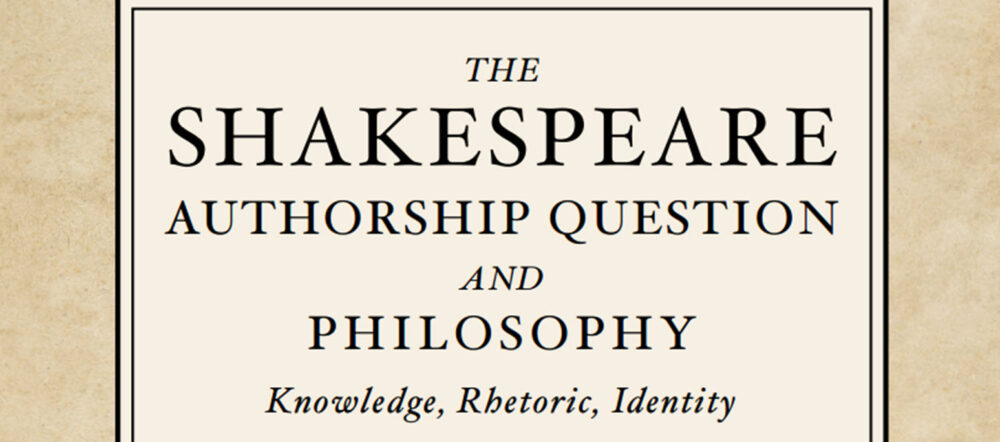Oliver Kamm’s May 2nd, 2024 Quillette op-Ed, “The Paranoid Style in Shakespeare Denialism,” [is] a lengthy invective against those who question the attribution of the plays and poems to the legendary gentleman from Stratford-Upon-Avon. His piece (notably invoking the title of Richard Hofstadter’s classic 1964 essay “The Paranoid Style in American Politics”) turned out to be an almost perfect synthesis of the rhetoric characterizing the “Stratfordian” side of this debate—rhetoric to which, I felt compelled to respond with my own essay, “Oliver Kamm Falls into ‘The Certainty Trap’: Responding to “The Paranoid Style in Shakespeare Denialism” which was posted to the Shakespeare Oxford Fellowship website on May 28th.
Kamm should have looked a little deeper into Richard Hofstadter’s ideas before he recruited him for his essay, in which he argued that no institution should give the authorship question any exposure whatsoever. Hofstadter would probably have vigorously disagreed. For his 1968 Commencement address to Columbia University, Hofstadter said,
“A university is a community, but it is a community of a special kind — a community devoted to inquiry. It exists so that its members may inquire into truths of all sorts. Its presence marks our commitment to the idea that somewhere in society there must be an organization in which anything can be studied or questioned not merely safe and established things but difficult and inflammatory things, the most troublesome questions of politics and war, of sex and morals, of property and national loyalty. It is governed by the ideal of academic freedom, applicable both to faculty and students. The ideal of academic freedom does indeed put extraordinary demands upon human restraint and upon our capacity for disinterested thought. Yet these demands are really of the same general order as those we regard as essential to any advanced civilization. The very possibility of civilized human discourse rests upon the willingness of people to consider that they may be mistaken. The possibility of modern democracy rests upon the willingness of governments to accept the existence of a loyal opposition, organized to reverse some of their policies and to replace them in office. Similarly, the possibility of the modern free university rests upon the willingness of society to support and sustain institutions part of whose business it is to examine, critically and without stint, the assumptions that prevail in that society. Professors are hired to teach and students are sent to learn with the quite explicit understanding that they are not required to agree with those who hire or send them.”
